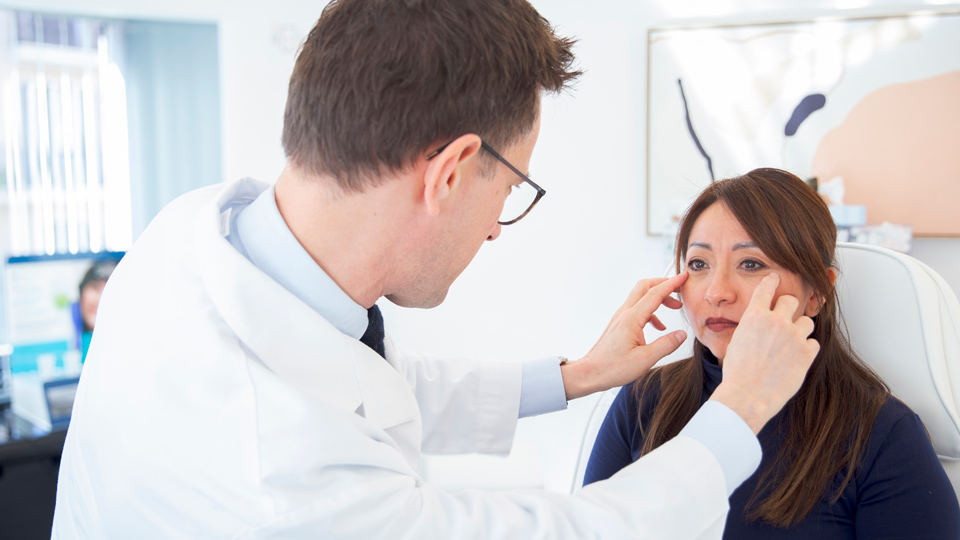Vitreoretinal complications in high myopia
09/01/2026

08/08/2025
Hyaluronic acid has become a highly popular solution for treating dark circles and rejuvenating the eye area.
At the oculofacial aesthetics unit at Barraquer, we offer this treatment to improve the appearance of the under-eye contour. The procedure involves the infiltration of hyaluronic acid into the tear trough area to fill the hollow and reduce dark pigmentation. It is carried out as follows:
1. Initial assessment. A specialist evaluates your facial anatomy and determines whether you are a good candidate for the treatment, as well as the type and amount of hyaluronic acid required.
2. Preparation. The treatment area is cleaned and disinfected. In some cases, topical anaesthetic is applied to minimise discomfort.
3. Injection. Using a microcannula or fine needle, the hyaluronic acid is injected into the tear trough area. This process takes approximately 20 minutes.
4. Massage and review. After the injection, a gentle massage is performed to ensure even distribution of the product, and the result is checked.
The treatment is minimally invasive and generally painless. The use of topical anaesthetic and microcannulas helps reduce discomfort. Some patients may experience slight discomfort during the injection, but it is well tolerated.
To ensure optimal results and proper recovery, the following is recommended:
The duration of the effects varies from patient to patient but generally ranges between 6 and 12 months. Factors such as individual metabolism, the type of hyaluronic acid used, and the amount of product injected all influence the longevity of the results.
Results are visible immediately after the treatment, although the optimal effect is seen after 15 days.
This treatment is not recommended for pregnant or breastfeeding women, individuals with skin conditions, or those with allergies to hyaluronic acid or anaesthetic.
Yes, hyaluronic acid can be complemented with other aesthetic procedures, such as neuromodulators (botox) or mesotherapy, to enhance results—always under medical supervision.
Dr Rob van der Veen, ophthalmologist at the Barraquer Ophthalmology Centre